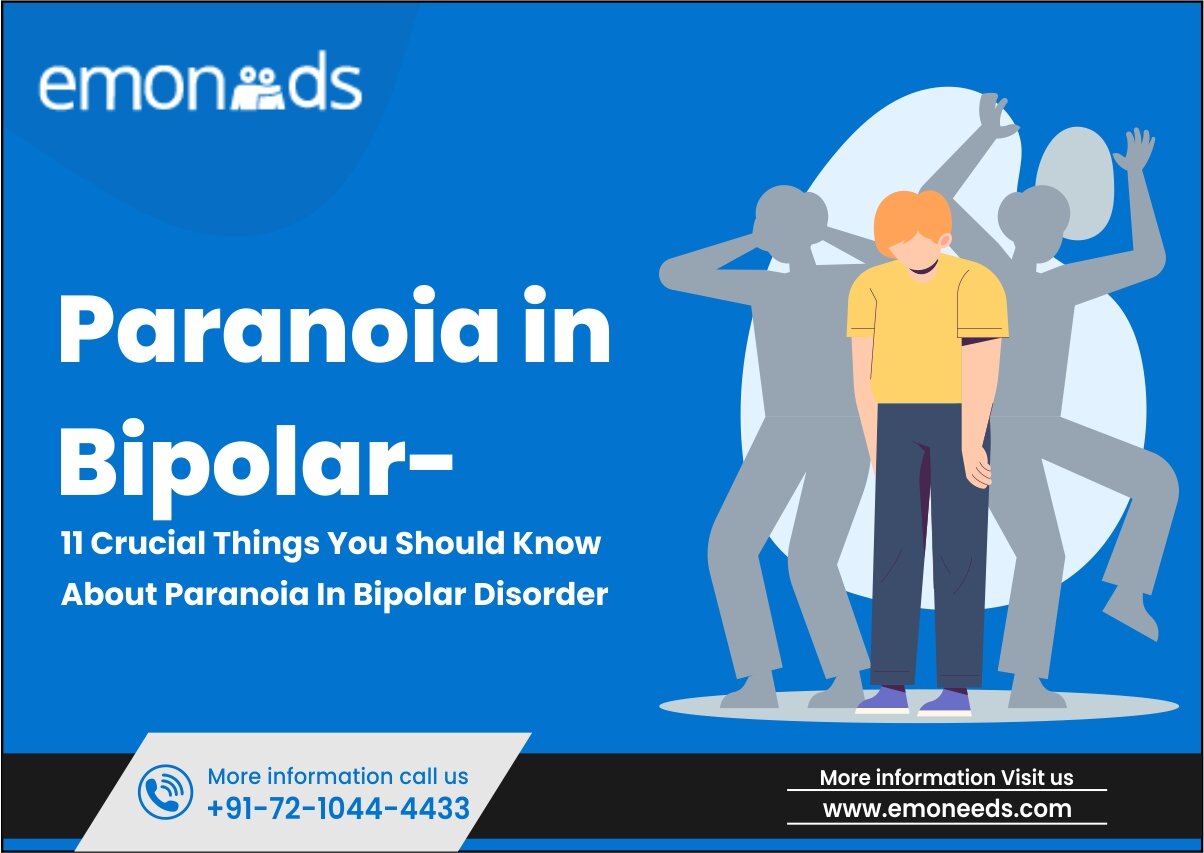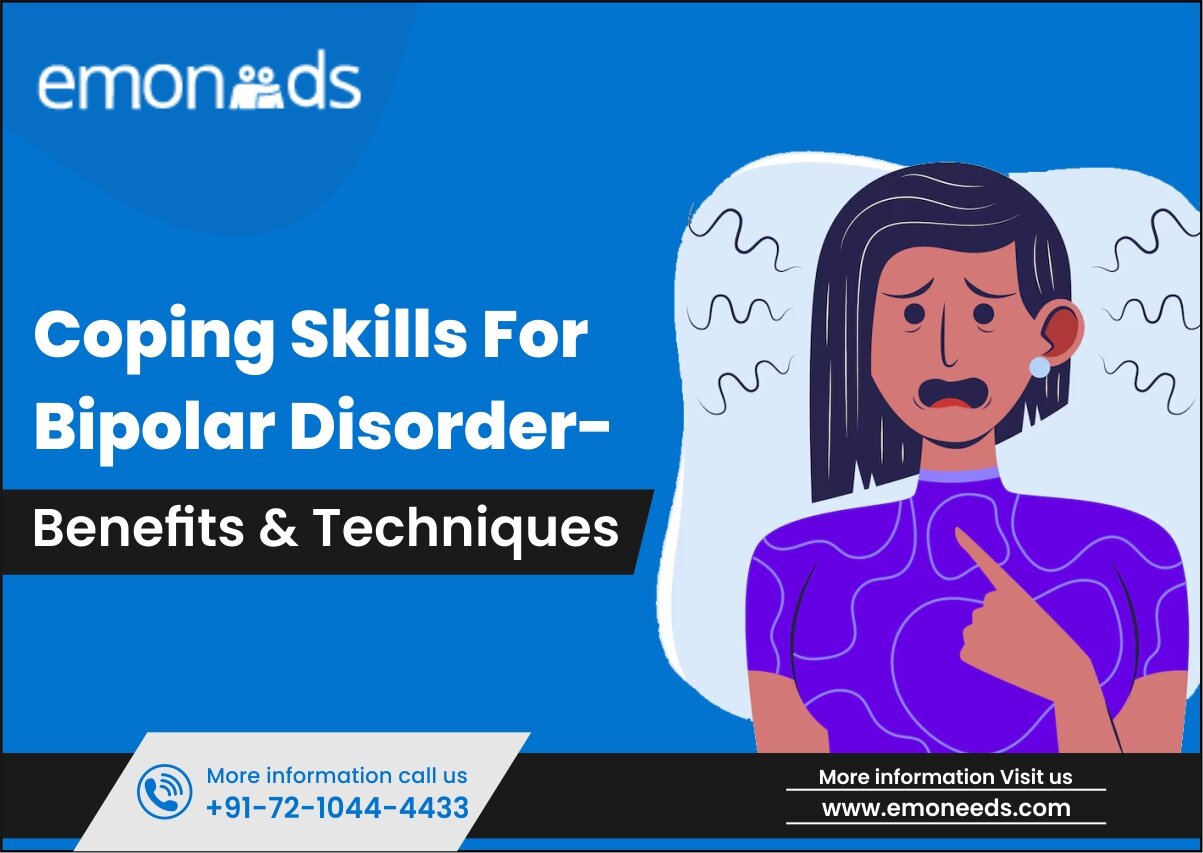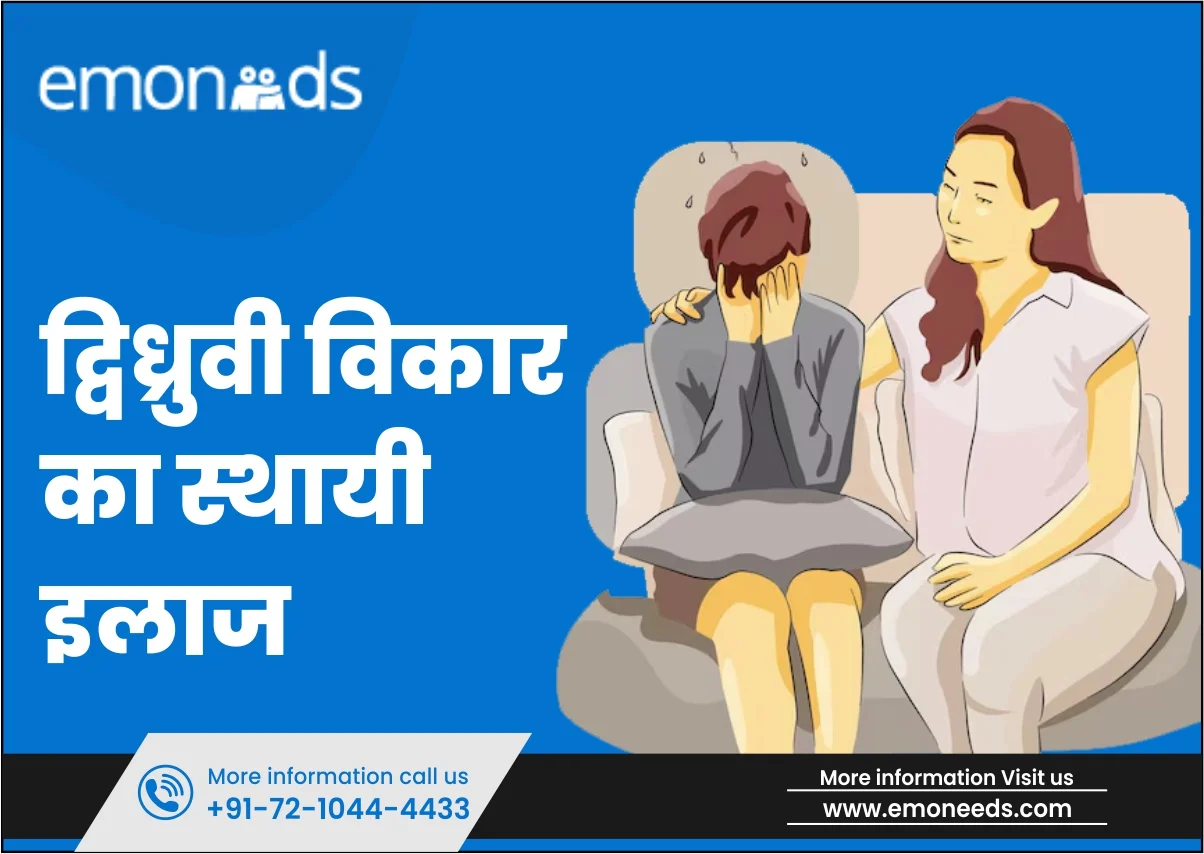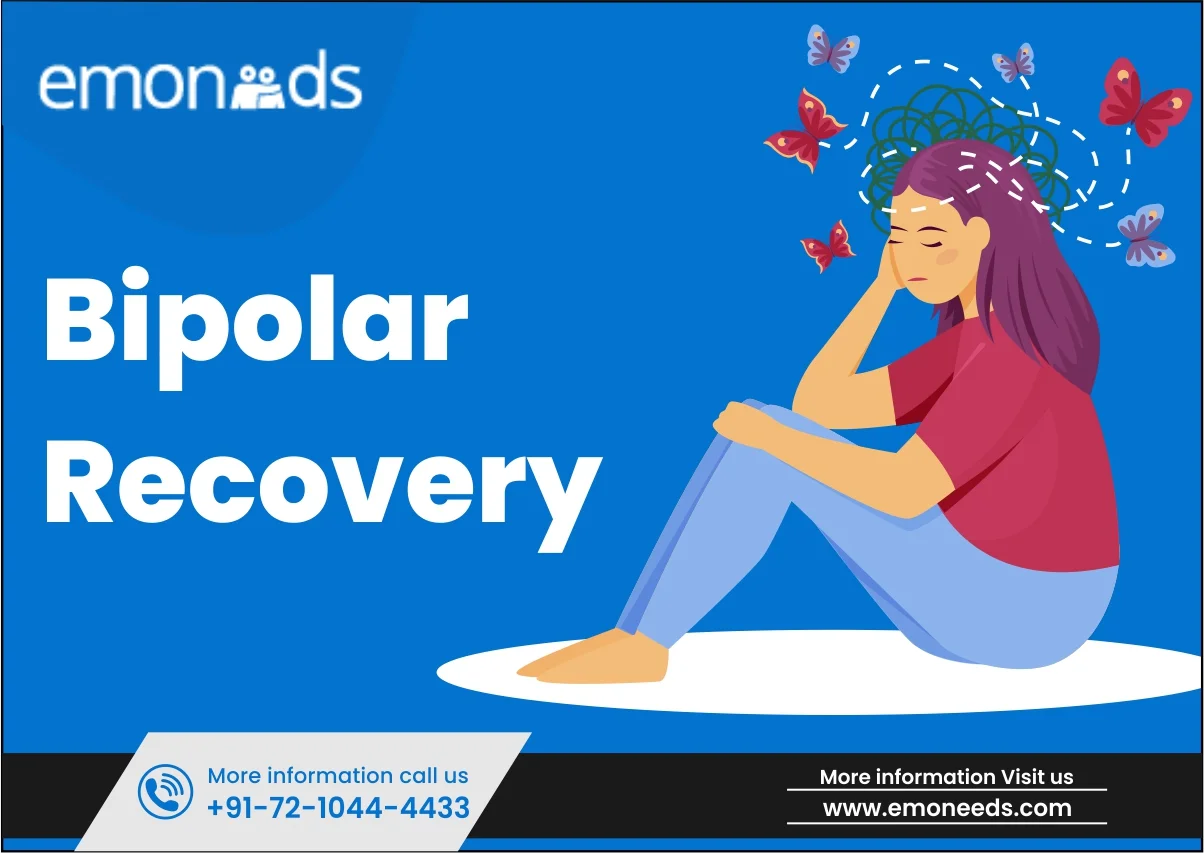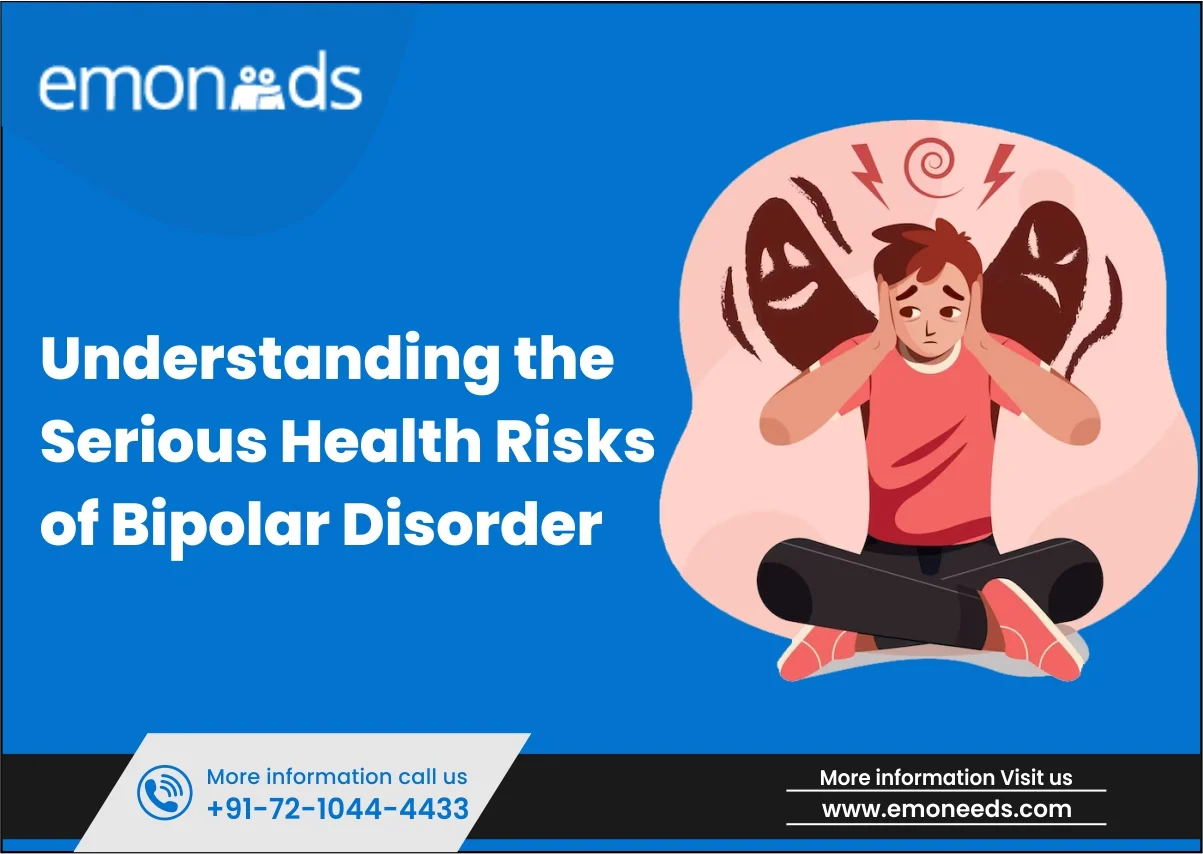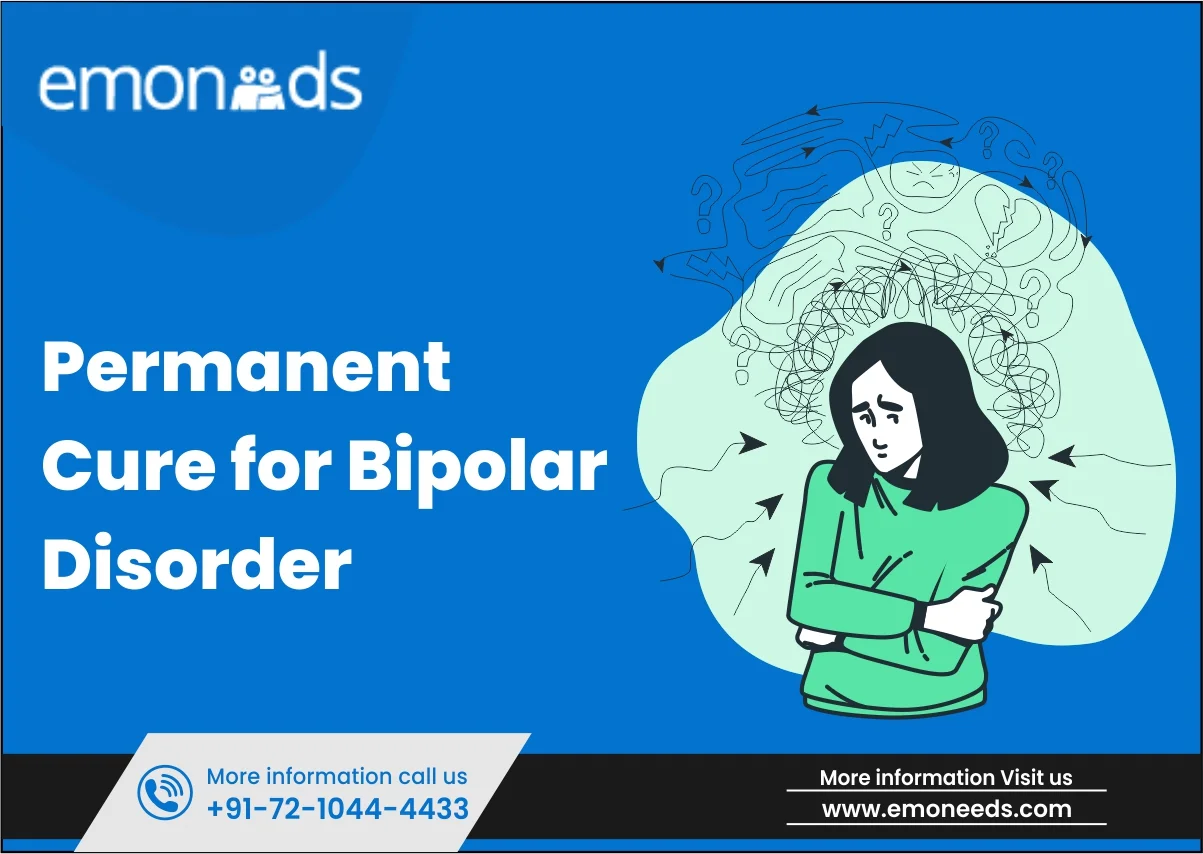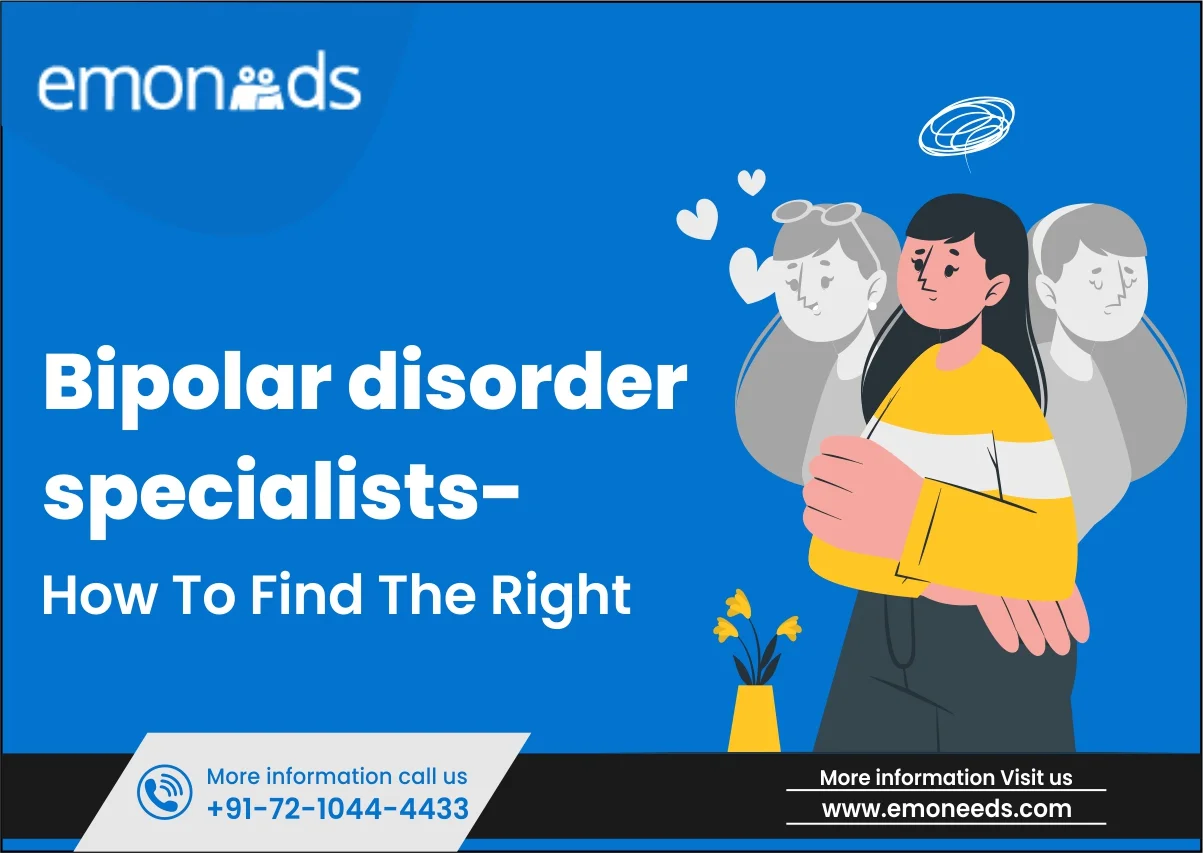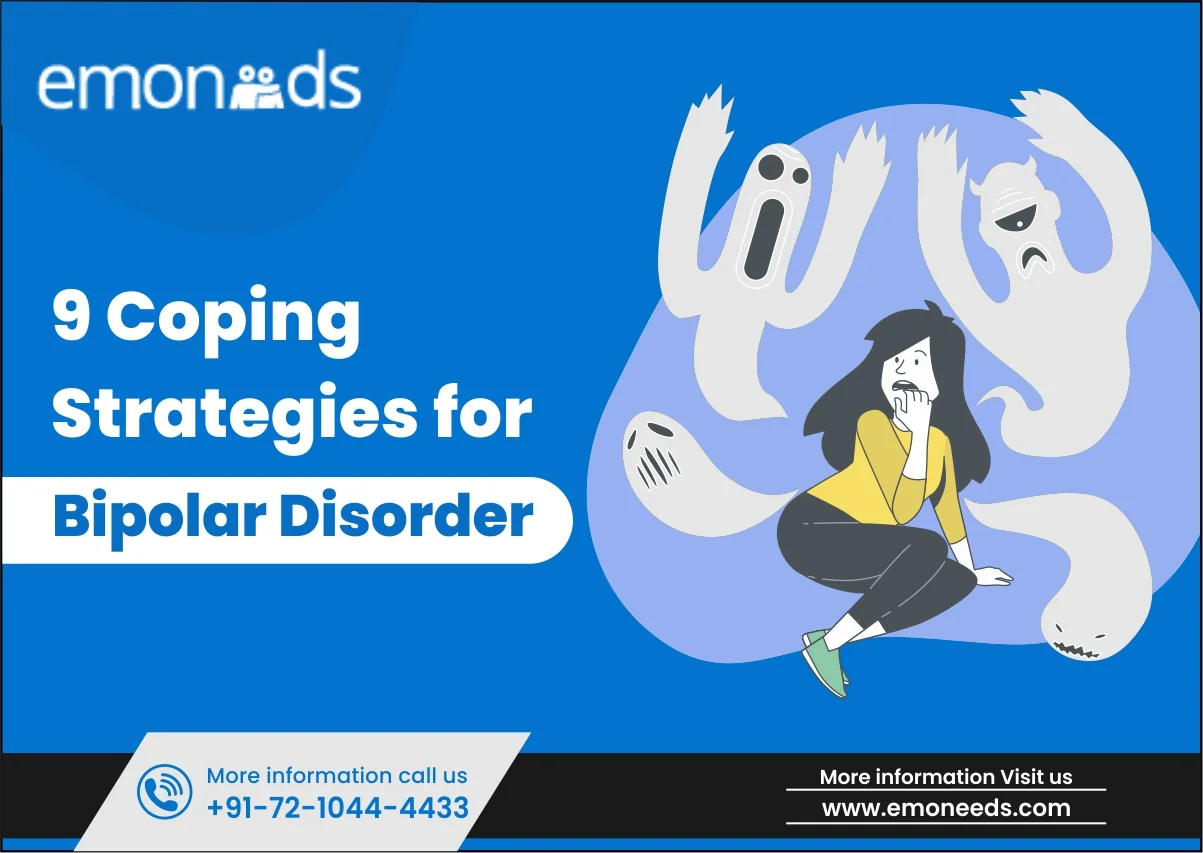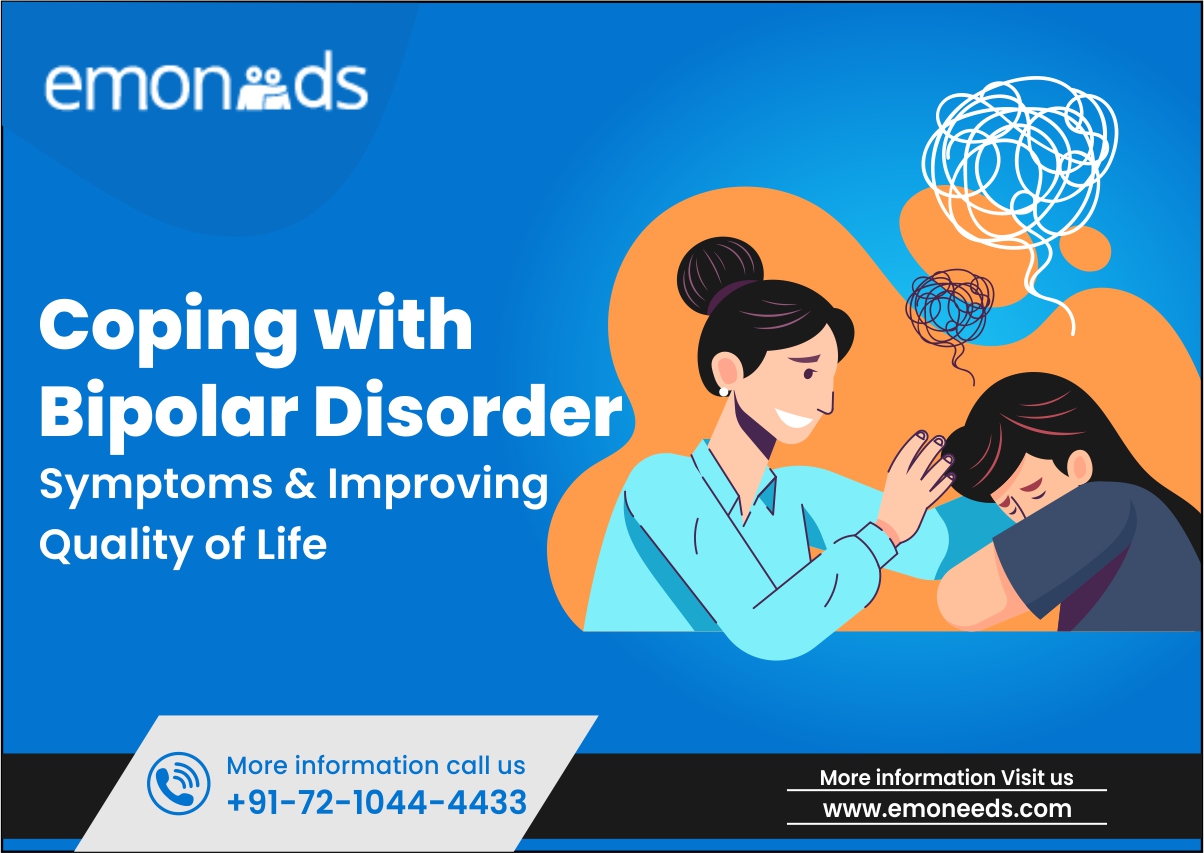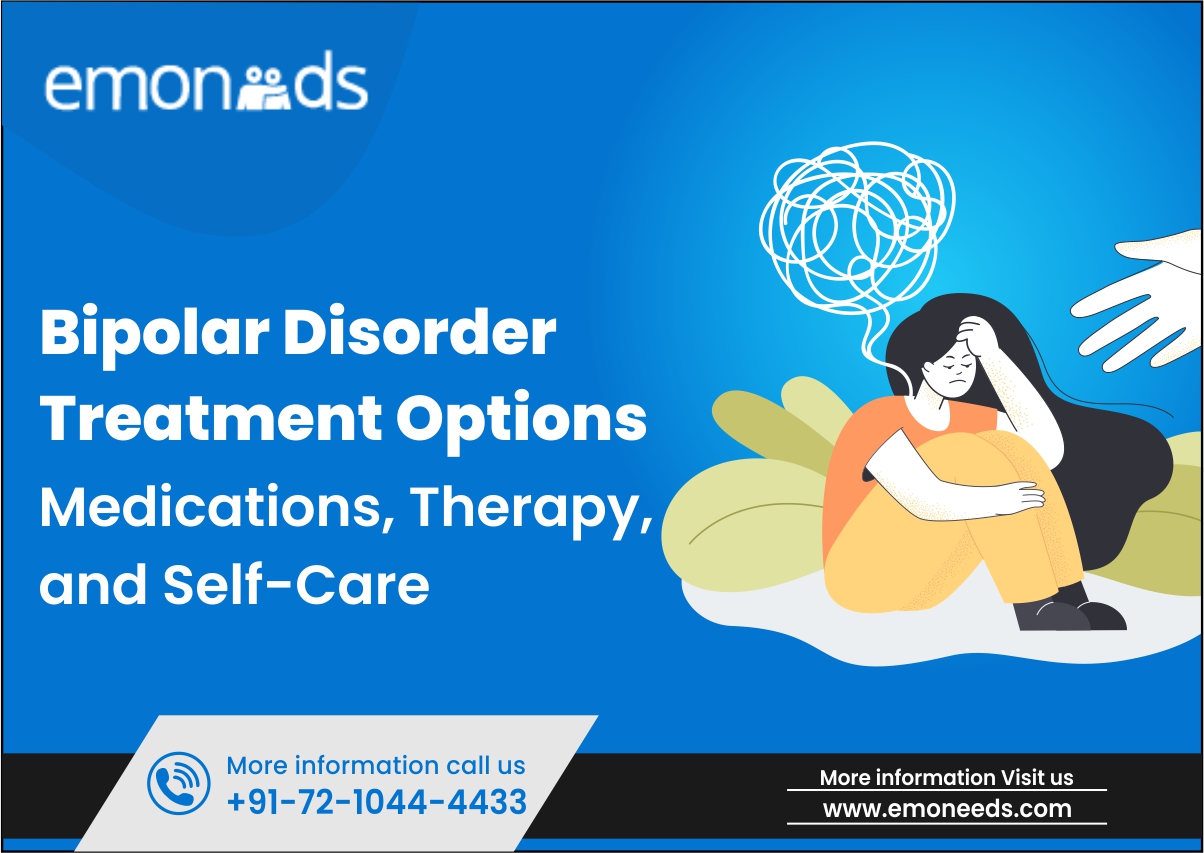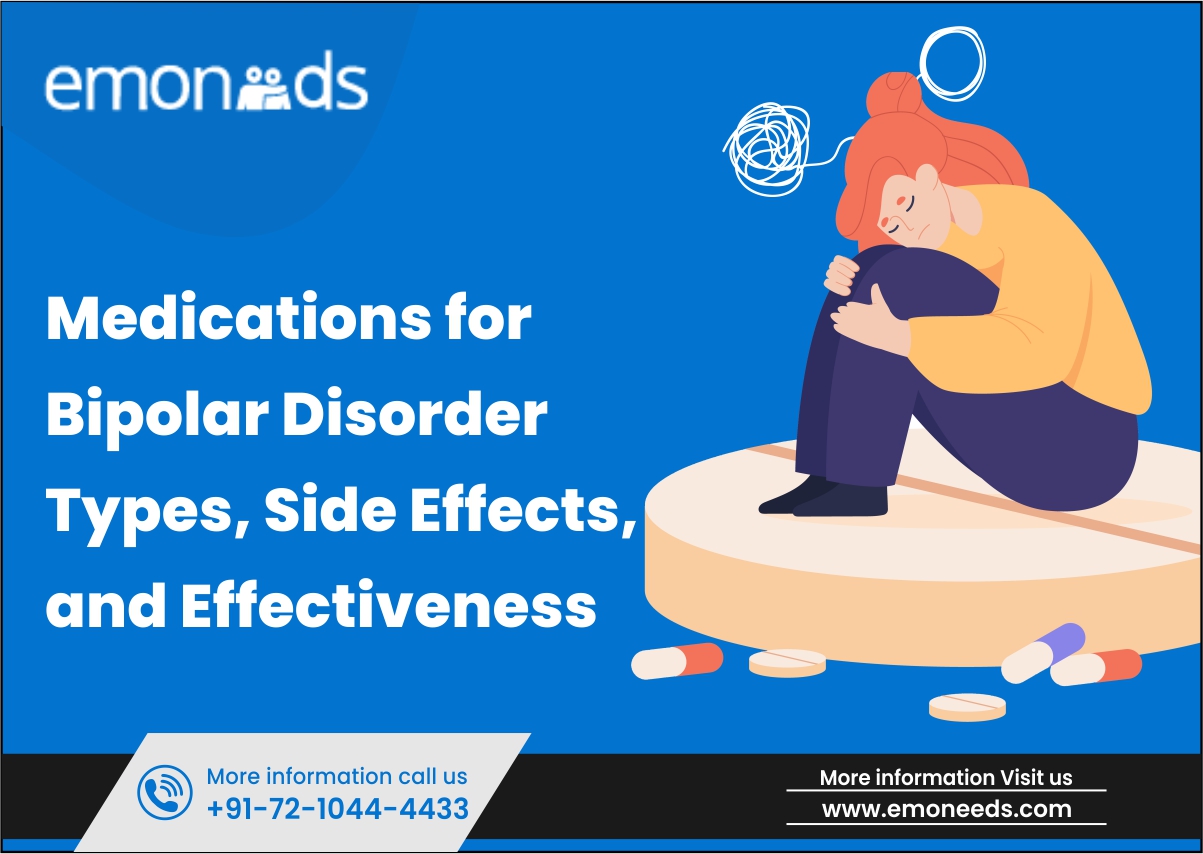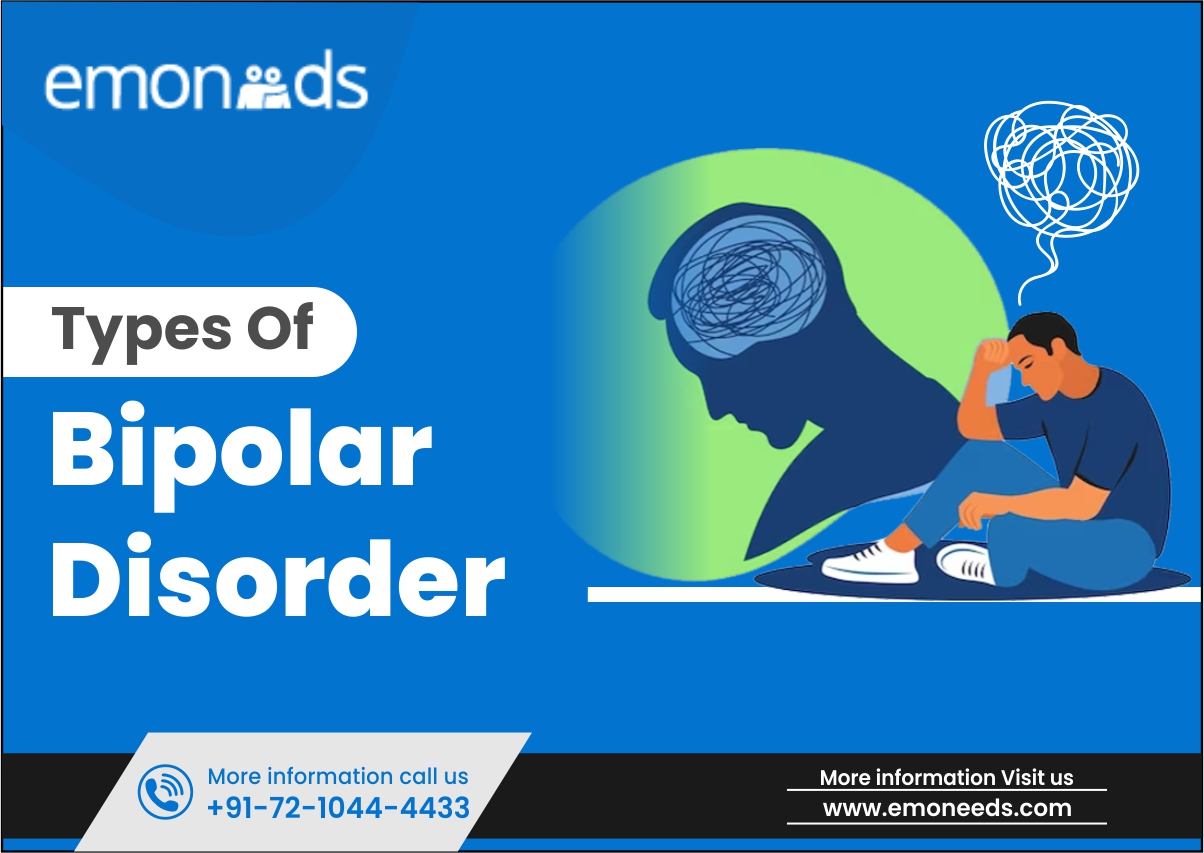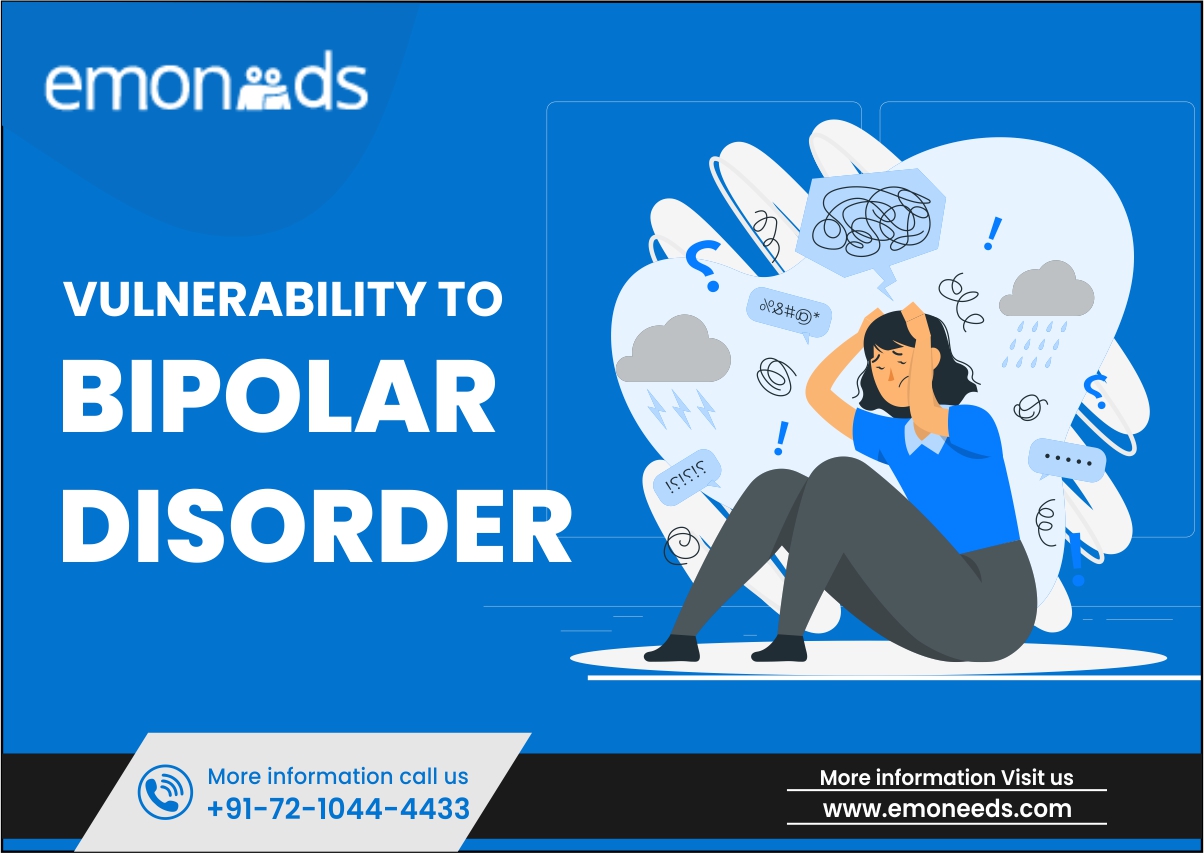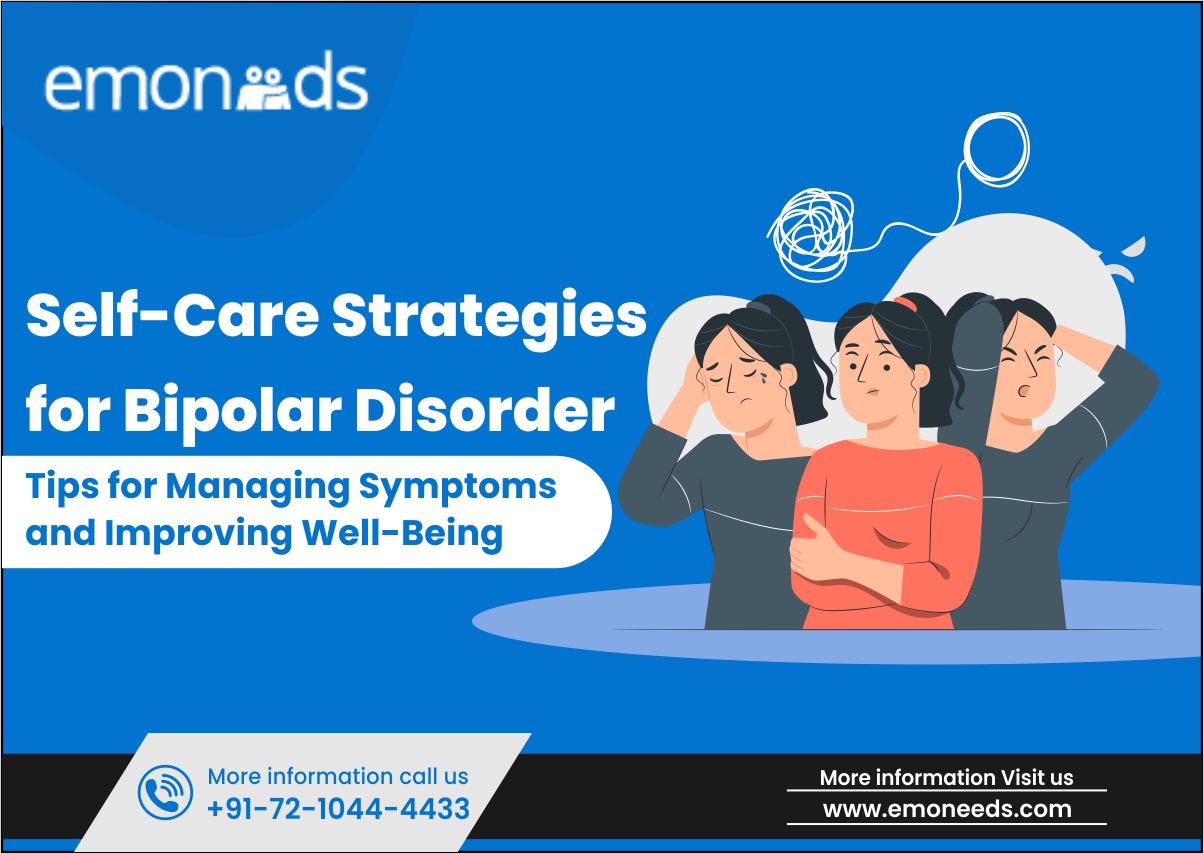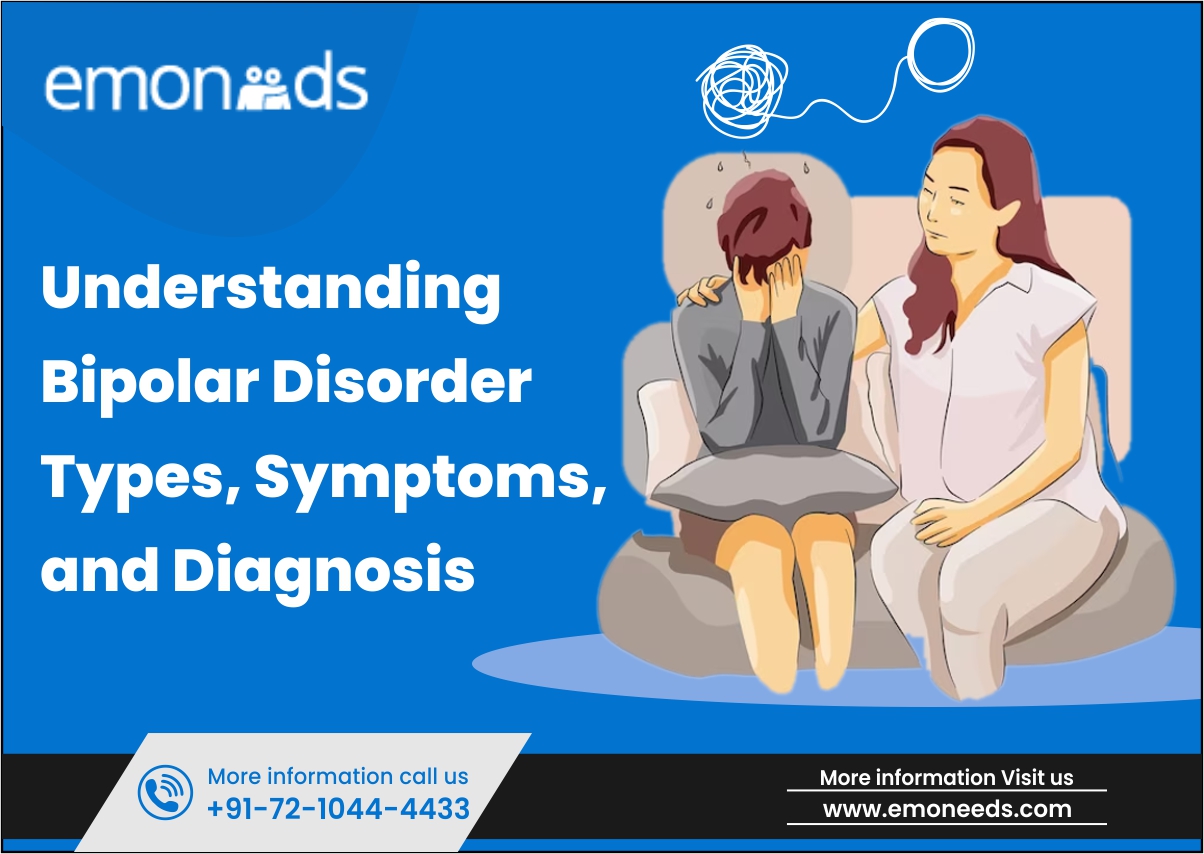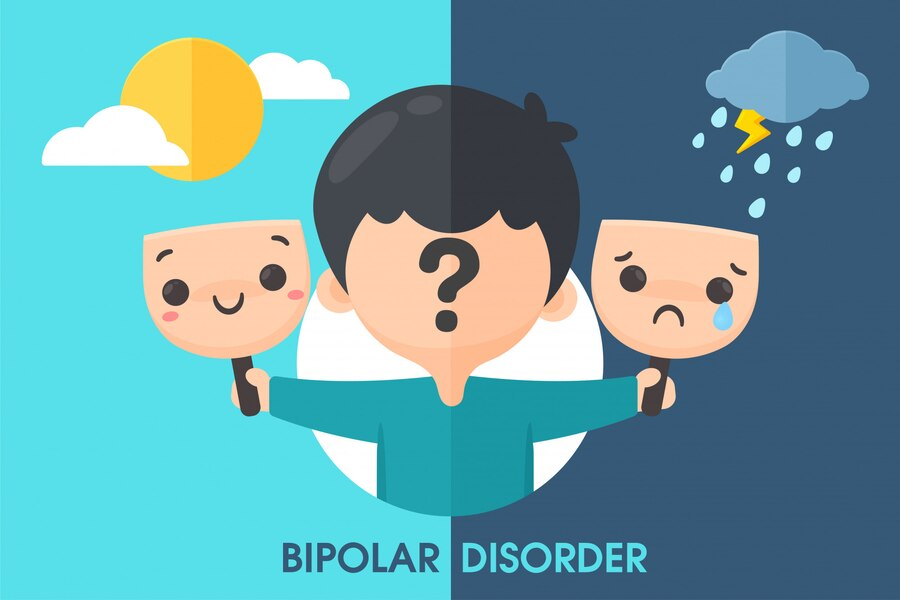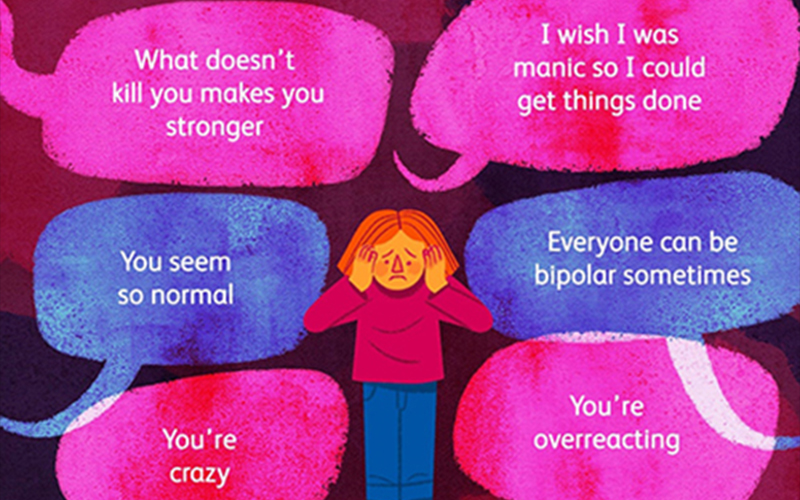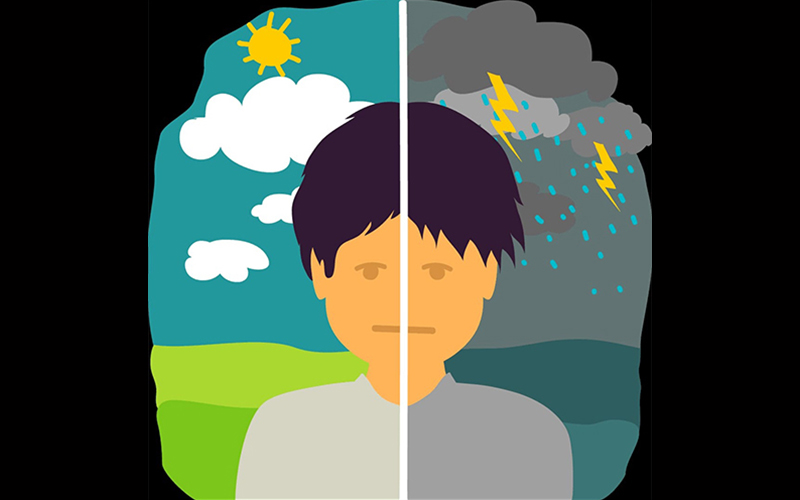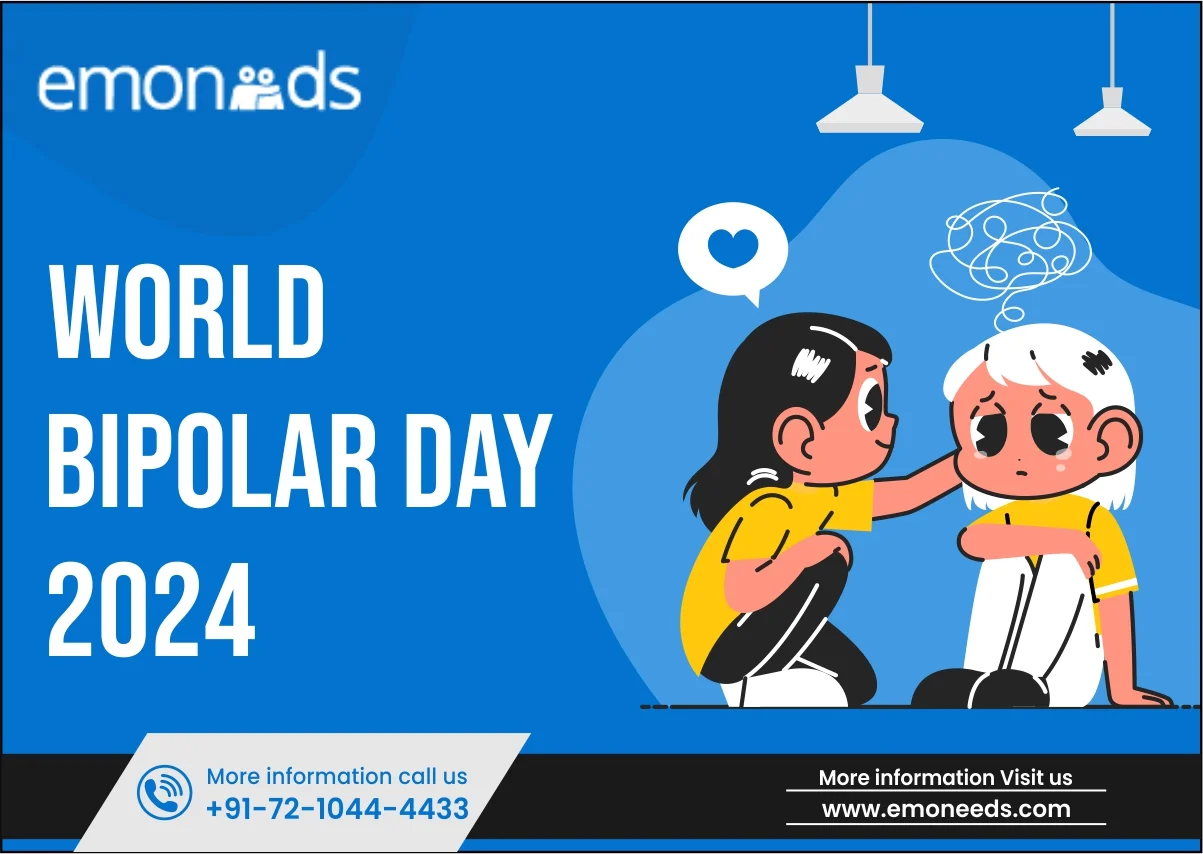
Every year, on March 30th, the global community comes together to celebrate the World Bipolar Disorder Day to shed light on the challenges faced by individuals living with bipolar disorder. This day holds significant importance in raising awareness, promoting the importance for early diagnosis and treatment, and providing support to affected individuals. Emoneeds recognizes the importance of World Bipolar Disorder Day and its impact on individuals worldwide.
Emoneeds is an online platform providing compassionate and effective mental health support tailored to your unique needs. At Emoneeds, we have successfully done 48,000+ client sessions, enabling individuals battle through their mental health struggles. With our treatment, 75% patients reported improvement within 12 weeks. 70% of our patients got easy and prompt access to their first counseling session within the first week of their treatment. Furthermore, 97% of our relapse patients were successful in navigating through their triggers without needing hospitalization.
9 Reasons Why World Bipolar Disorder Day Is Important
Bipolar disorder is a complex mental health concern that affects millions of people worldwide. The world Bipolar Disorder Day talks about the importance of recognizing, supporting, and managing bipolar disorder effectively. Below are the 9 reasons why World Bipolar Disorder Day is crucial:
-
Raising Awareness
Increasing awareness about bipolar disorder is essential for several reasons. First and foremost, it helps to combat the stigma surrounding mental health conditions. By raising awareness and promoting understanding, we can reduce misconceptions and discrimination against individuals living with bipolar disorder.
Many individuals with bipolar disorder experience delays in receiving appropriate treatment due to a lack of awareness. By educating the public about the signs and symptoms of bipolar disorder, we can encourage individuals to seek help sooner which can lead to better outcomes and improved quality of life.
Additionally, raising awareness about bipolar disorder can help to promote access to resources and support services for affected individuals and their families. It can also facilitate discussions about mental health in various settings, including schools, workplaces, and communities, fostering a more supportive and inclusive environment for those living with bipolar disorder.
World Bipolar Day serves as a platform to raise global awareness about bipolar disorder. This day aims to reduce stigma and encourage open conversations about mental health. By educating the public about the symptoms, causes, and treatments of bipolar disorder, Emoneeds aims to foster understanding and empathy.
-
Advocating for Early Diagnosis
Early diagnosis of bipolar disorder is critical for minimizing the impact of the illness, enhancing treatment outcomes, and empowering individuals to lead fulfilling and productive lives. Below we have mentioned how early diagnosis can help you manage bipolar disorder
- Timely Intervention: Early diagnosis allows for prompt intervention and treatment, which can help prevent the progression of symptoms and mitigate their severity. With timely diagnosis, individuals can receive appropriate medical care, psychotherapy, and support services tailored to their needs.
- Preventing Crisis Situations: Bipolar disorder is characterized by periods of mood instability, including manic or depressive episodes. Early diagnosis enables healthcare professionals to identify warning signs and intervene before these episodes escalate into full-blown crises, reducing the risk of hospitalization or other serious complications.
- Developing Coping Strategies: Early diagnosis provides individuals with the opportunity to learn about their condition and develop effective coping strategies to manage symptoms. This may include psychoeducation, stress management techniques, lifestyle modifications, and strategies for regulating mood and behavior.
- Establishing a Treatment Plan: Early diagnosis allows healthcare providers to work closely with individuals to develop a comprehensive treatment plan that addresses their unique needs and preferences. This may involve medication management, psychotherapy, lifestyle changes, and other interventions aimed at stabilizing mood and promoting overall well-being.
- Improving Quality of Life: By effectively managing symptoms from the outset, early diagnosis can significantly improve the quality of life for individuals with bipolar disorder. It enables them to maintain stable relationships, pursue educational and career goals, and engage in meaningful activities without being unduly hindered by their condition.
Through World Bipolar Disorder Day campaigns and initiatives, Emoneeds advocates for early detection of symptoms and encourages individuals to seek professional help promptly.
-
Promoting Access to Treatment
Getting effective bipolar disorder treatment is crucial because it plays a crucial role in managing symptoms, stabilizing mood, preventing relapses, and improving the overall quality of life for individuals affected by the condition. Seeking professional treatment can help you in
- Symptom Management: Bipolar disorder treatment involves a combination of medication, psychotherapy, and lifestyle changes, helping to regulate mood swings and manage symptoms effectively.
- Preventing Relapses: Without proper treatment, individuals with bipolar disorder are at risk of experiencing recurrent mood episodes, which can significantly disrupt their lives and increase the likelihood of functional impairment, hospitalization, and other adverse outcomes. Treatment aims to minimize the frequency and severity of relapses, thereby promoting long-term stability.
- Addressing Co-occurring Conditions: Many individuals with bipolar disorder experience co-occurring psychiatric conditions, such as anxiety disorders, substance use disorders, and attention-deficit/hyperactivity disorder (ADHD). Treatment helps address these comorbidities and their associated symptoms, enhancing overall mental health and well-being.
- Improving Functioning: Bipolar disorder can impact various aspects of an individual’s life, including relationships, work, and social functioning. Treatment focuses not only on symptom reduction but also on improving functional outcomes, such as occupational functioning, social relationships, and daily activities, thereby enhancing overall quality of life.
- Enhancing Self-management Skills: Treatment provides individuals with bipolar disorder with the knowledge, skills, and resources they need to effectively manage their condition on a day-to-day basis. This may include learning about symptom recognition, stress management techniques, medication adherence, and lifestyle modifications to promote stability and resilience.
- Supporting Recovery: Bipolar disorder is a chronic condition that requires ongoing management and support. Treatment offers individuals the opportunity to engage in the recovery process, develop coping strategies, and build resilience in the face of challenges associated with their illness.
-
Offering Coping Strategies
Coping strategies are essential in managing bipolar disorder symptoms effectively and promoting long-term stability and well-being. By incorporating a variety of coping techniques into daily lives, individuals with bipolar disorder can enhance their resilience, optimize treatment outcomes, and achieve greater overall quality of life. Find some crucial benefits of coping strategies in managing bipolar disorder symptoms:-
- Stress Reduction: Coping strategies such as mindfulness meditation, deep breathing exercises, and progressive muscle relaxation can help reduce stress levels, which is crucial for managing bipolar symptoms. By learning to recognize and respond to stressors effectively, individuals can minimize the risk of triggering mood episodes.
- Mood Tracking: Keeping track of mood fluctuations, energy levels, sleep patterns, and other relevant factors using mood tracking tools or apps allows individuals to identify patterns and early warning signs of mood shifts. This enables proactive management and timely intervention to prevent mood episodes from escalating.
- Medication Adherence: Adhering to prescribed medication regimens is essential for stabilizing mood and preventing relapses in bipolar disorder. Coping strategies such as using pill organizers, setting reminders, and incorporating medication into daily routines can support medication adherence and optimize treatment outcomes.
- Healthy Lifestyle Habits: Engaging in regular exercise, maintaining a balanced diet, prioritizing adequate sleep, and avoiding substance abuse are fundamental coping strategies that promote overall well-being and symptom management in bipolar disorder. These lifestyle habits help regulate mood, enhance resilience, and support the effectiveness of treatment.
- Problem-Solving Skills: Developing problem-solving skills enables individuals to effectively address challenges and setbacks that may arise in various areas of life, such as relationships, work, and financial matters. Coping strategies such as breaking down problems into manageable steps, seeking support from others, and brainstorming alternative solutions empower individuals to navigate difficulties constructively.
- Social Support: Building and maintaining a strong support network of family, friends, peers, and mental health professionals is a valuable coping strategy for bipolar disorder. Social support provides encouragement, validation, practical assistance, and a sense of belonging, which can help individuals cope with stress, reduce feelings of isolation, and foster resilience.
- Psychoeducation: Learning about bipolar disorder, its symptoms, triggers, treatment options, and self-management strategies through psychoeducation programs, support groups, or educational resources empowers individuals to make informed decisions about their care, enhance self-awareness, and develop coping skills tailored to their unique needs.
Read our other article to Learn about bipolar disorder coping strategies.
-
Educating About Coping Strategies
Educating people about coping strategies is essential for bipolar disorder because it promotes empowerment, early intervention, treatment adherence, symptom management, self-efficacy, and overall improvement in quality of life. By raising awareness and providing education about coping strategies, individuals with bipolar disorder can better navigate the challenges of their condition and achieve greater stability and well-being. Here the several reasons why it is important to educate people about bipolar disorder coping strategies:-
- Empowerment: Knowledge is empowering. By understanding various coping strategies, individuals with bipolar disorder can take an active role in managing their condition and feel a greater sense of control over their symptoms and overall well-being.
- Symptom Management: Coping strategies encompass a range of techniques and practices aimed at managing symptoms, reducing stress, and enhancing resilience. Educating individuals about these strategies enables them to develop personalized approaches to coping with mood fluctuations, stressors, and other challenges associated with bipolar disorder.
- Symptom Management: Coping strategies encompass a range of techniques and practices aimed at managing symptoms, reducing stress, and enhancing resilience. Educating individuals about these strategies enables them to develop personalized approaches to coping with mood fluctuations, stressors, and other challenges associated with bipolar disorder.
-
Advocating for Research Funding
Research plays a crucial role in advancing our understanding and management of bipolar disorder symptoms in several ways:
- Treatment Development: Research contributes to the development of new and improved treatments for bipolar disorder. This includes pharmacological interventions, psychotherapeutic approaches, and non-pharmacological interventions such as lifestyle modifications and complementary therapies. By identifying novel treatment targets and strategies, research aims to enhance the effectiveness, tolerability, and accessibility of interventions for managing bipolar symptoms.
- Evidence-Based Practice: Research provides the scientific evidence upon which clinical practice guidelines and treatment recommendations are based. Clinicians rely on empirical research findings to inform their decisions regarding the selection and implementation of interventions for individuals with bipolar disorder. Evidence-based practice ensures that treatment approaches are grounded in scientific rigor and proven efficacy, leading to more effective symptom management and better outcomes for patients.
- Understanding Pathophysiology: Research enhances our understanding of the underlying neurobiological, genetic, and environmental factors contributing to bipolar disorder. By elucidating the pathophysiological mechanisms involved in the onset and progression of the illness, research offers insights into potential targets for intervention and avenues for personalized treatment approaches. This deeper understanding of bipolar disorder’s etiology and pathogenesis informs the development of more targeted and tailored interventions aimed at addressing the specific needs of individuals with the condition.
- Treatment Optimization: Research contributes to the optimization of existing treatments and therapeutic approaches for bipolar disorder. Through clinical trials, observational studies, and comparative effectiveness research, investigators evaluate the efficacy, safety, and tolerability of different treatment modalities, dosages, and combinations. This evidence helps clinicians tailor treatment regimens to individual patients’ needs, preferences, and treatment responses, optimizing outcomes and minimizing adverse effects.
-
Empowering Individuals to Seek Help
Consulting a doctor is crucial for individuals with bipolar disorder due to several reasons:-
- Accurate Diagnosis: Bipolar disorder can be challenging to diagnose accurately, as its symptoms may overlap with other mental health conditions. Consulting a doctor, particularly a psychiatrist or mental health professional specializing in mood disorders, ensures a thorough evaluation and accurate diagnosis based on clinical assessment, symptom presentation, and diagnostic criteria outlined in diagnostic manuals such as the Diagnostic and Statistical Manual of Mental Disorders (DSM-5). An accurate diagnosis is essential for developing an appropriate treatment plan tailored to the individual’s specific needs.
- Personalized Treatment Plan: Bipolar disorder is a complex and heterogeneous condition that varies widely in symptom severity, presentation, and treatment response among individuals. Consulting a doctor enables the development of a personalized treatment plan that addresses the individual’s unique symptoms, preferences, medical history, and psychosocial context. A comprehensive treatment plan may include a combination of pharmacotherapy, psychotherapy, lifestyle modifications, and psychosocial interventions tailored to the individual’s needs and preferences.
- Medication Management: Pharmacotherapy, including mood stabilizers, antipsychotics, antidepressants, and other psychotropic medications, is often a cornerstone of bipolar disorder treatment. Consulting a doctor, particularly a psychiatrist, is essential for medication management, including medication selection, dosing, monitoring, and adjustment based on the individual’s treatment response, tolerability, and side effects. Regular follow-up visits with a doctor allow for ongoing assessment of medication efficacy and safety, optimization of treatment regimens, and management of any adverse effects.
-
Emphasizing the Importance of Early Intervention
Early intervention is essential in bipolar disorder for preventing disease progression, improving treatment outcomes, reducing disease burden, preventing crises, and promoting recovery and resilience. By addressing symptoms early and proactively, individuals with bipolar disorder can achieve better long-term outcomes and enjoy improved quality of life and well-being. Along with this early intervention can also help in:-
- Prevention of Progression: Early intervention can prevent the progression of bipolar disorder and mitigate its long-term impact on individuals’ lives. Prompt identification and treatment of bipolar symptoms can prevent the exacerbation of symptoms, reduce the frequency and severity of mood episodes, and minimize the risk of complications such as substance abuse, suicidal behavior, and impaired social and occupational functioning.
- Improved Treatment Outcomes: Early intervention is associated with better treatment outcomes in bipolar disorder. Research suggests that individuals who receive timely and appropriate treatment experience faster symptom relief, achieve greater stability in mood and functioning, and have a lower risk of relapse compared to those with delayed or inadequate intervention. Early treatment can also enhance treatment response to pharmacotherapy, psychotherapy, and psychosocial interventions, leading to improved quality of life and overall well-being.
- Reduced Disease Burden: Early intervention can reduce the overall burden of bipolar disorder on individuals, families, and society. By addressing symptoms early in the course of the illness, individuals may experience fewer hospitalizations, emergency room visits, and disability days, resulting in reduced healthcare costs and socioeconomic burden associated with untreated or poorly managed bipolar disorder. Early intervention can also minimize the negative impact of bipolar symptoms on relationships, work performance, and daily functioning, promoting overall health and productivity.
- Prevention of Crisis Situations: Early intervention can prevent crisis situations and psychiatric emergencies associated with untreated or undertreated bipolar disorder. By addressing symptoms proactively, individuals can avoid acute mood destabilization, suicidal behavior, self-harm, and other psychiatric crises that may require emergency intervention, hospitalization, or involuntary treatment. Early intervention promotes safety, reduces the risk of harm, and enhances individuals’ ability to manage their symptoms effectively, even during challenging times.
-
Fostering Hope and Support
There are several resources available to individuals seeking help and support for bipolar disorder:-
- Mental Health Professionals: Psychiatrists, psychologists, and clinical social workers specializing in mood disorders can provide comprehensive evaluation, diagnosis, and treatment for bipolar disorder. They can offer psychotherapy, medication management, and other evidence-based interventions tailored to individual needs.
- Support Groups: Joining a support group for bipolar disorder can provide valuable peer support, encouragement, and coping strategies. These groups, often facilitated by mental health professionals or trained peers, offer a safe and understanding environment for sharing experiences, gaining insights, and accessing resources.
- Online Communities: Online forums, chat rooms, and social media groups dedicated to bipolar disorder allow individuals to connect with others facing similar challenges, regardless of geographic location. These platforms offer opportunities for sharing experiences, seeking advice, and accessing information about treatment options and resources.
World Bipolar Disorder Day serves as a beacon of hope for individuals living with bipolar disorder and their loved ones. Emoneeds aims to foster a supportive and understanding community where individuals feel empowered to seek help, share their experiences, and find solidarity in their journey towards mental wellness.
On World Bipolar Disorder Day 2024, let us stand together in solidarity and compassion, as we work towards a world where mental health is prioritized and supported.
